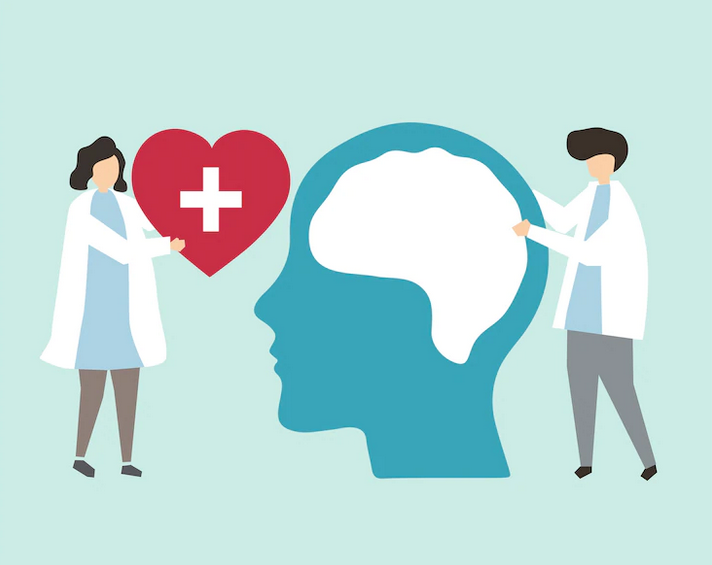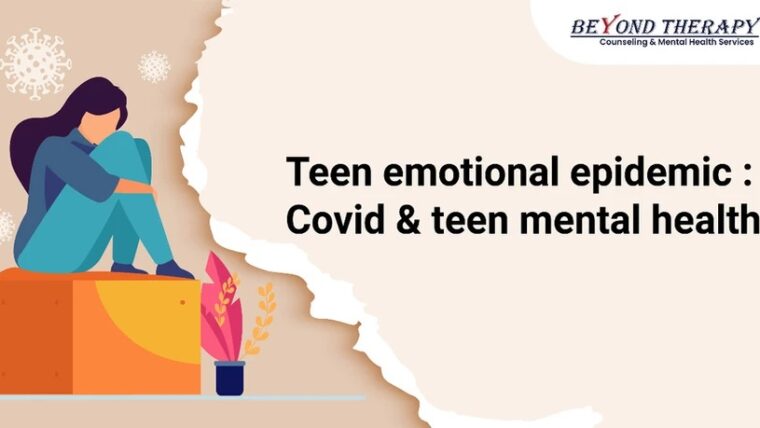While the differences between physical medical conditions are often visible, distinguishing between psychological conditions can be much more difficult. Especially for adults, it’s not uncommon to be misdiagnosed with a mental illness before receiving a diagnosis for a developmental disorder such as autism spectrum disorder (ASD).
However, mental illness and developmental disabilities are not the same, although many people with developmental disabilities often experience co-occurring mental disorders. When someone with a developmental disorder also has a mental illness, it’s known as a dual diagnosis. Once a developmental disorder is diagnosed, therapists can effectively treat symptoms of mental health conditions, and behavioral problems.

How are developmental disorders diagnosed?
While developmental disabilities are typically diagnosed during early childhood, mental illness can affect people of any age and at any stage of life—from adolescence to adulthood. While young children can experience mental disorders, these conditions can also begin during adulthood.
When it comes to diagnosis, one of the key distinguishing factors between developmental disabilities and mental disorders is thought processes and behavior, according to the Intellectual Disability Rights Service. In the case of pervasive developmental disorders, individuals lack the cognitive ability to understand certain thoughts. For some people, a developmental disorder can serve as an obstacle to learning. Similarly, intellectual disabilities, which fall under the category of developmental disabilities, are specific to cognitive processes, while developmental disabilities can involve cognitive processes, physical processes, or both.
In contrast, mental disorders do not directly affect cognitive abilities. Instead, they alter an individual’s perception and thought processes. While a child with anxiety may find it difficult to talk in social situations, a child with a developmental disorder may lack the cognitive ability to understand social communication or body language.
Developmental disorders and mental disorders also vary in duration. Although developmental problems can be treated with early intervention, most developmental disorders are lifelong disabilities. On the other hand, mental illnesses are not always lifelong. Some mental health conditions are chronic, while others are temporary or recur in episodes over a person’s lifetime.
Types of Developmental Disorders
The United States Centers for Disease Control (CDC) defines developmental disabilities as “a group of conditions due to an impairment in physical, learning, language or behavior areas.”
Developmental delays and disabilities are diagnosed based on a child’s development and behavior. While some disabilities can be diagnosed as early as birth, most children are diagnosed during early childhood. Developmental disabilities include neurodevelopmental disorders, genetic disorders, and communication disorders, such as:
- Autism spectrum disorder (ASD)
- Attention-deficit hyperactivity disorder (ADHD)
- Cerebral palsy
- Conduct disorders
- Fragile X syndrome
- Hearing loss
- Intellectual disability (mental retardation)
- Seizure disorders, such as epilepsy
- Vision impairment
The types of problems that children experience due to developmental delays vary. While some children experience specific learning difficulties, others may face challenges with social skills. It’s also common for children to experience more than one developmental disorder or co-occurring mental health challenges.
For children with developmental disabilities, early identification and early intervention are integral. As a result, it’s important to schedule regular visits with your child’s pediatrician to perform developmental screen exams and ensure they’re meeting developmental milestones.
Therapy for Developmental Disorders
While mental health conditions and developmental disabilities have significant differences, they also share some similarities. Both conditions can be diagnosed and treated by mental health professionals, including therapists, psychologists, and counselors, and their diagnostic criteria are outlined in the Diagnostic and Statistical Manual of Mental Disorders.
Treatment programs for developmental disabilities are highly individualized and often include therapies, skills training, and support. Although medication is not typically prescribed to treat the core symptoms of developmental delays, medication can help improve functioning by assisting individuals to manage issues like seizures and hyperactivity. Therapy is a crucial component of treatment for those with developmental disorders, as well as for the parents and family of the affected individual.
To find a therapist, reach out to a mental health professional through Beyond Therapy. Whether you’re interested in family counseling or behavioral therapy, we’ll connect you to a therapist you feel comfortable with. One of the mental health care professionals on the Beyond Therapy platform can provide emotional support for caregivers and help children develop new skills to express themselves and develop healthy ways to cope with their disability.




